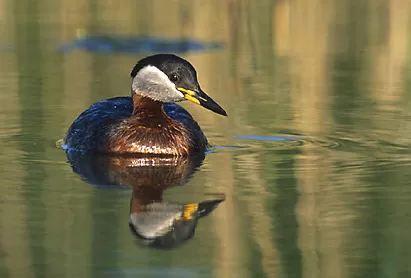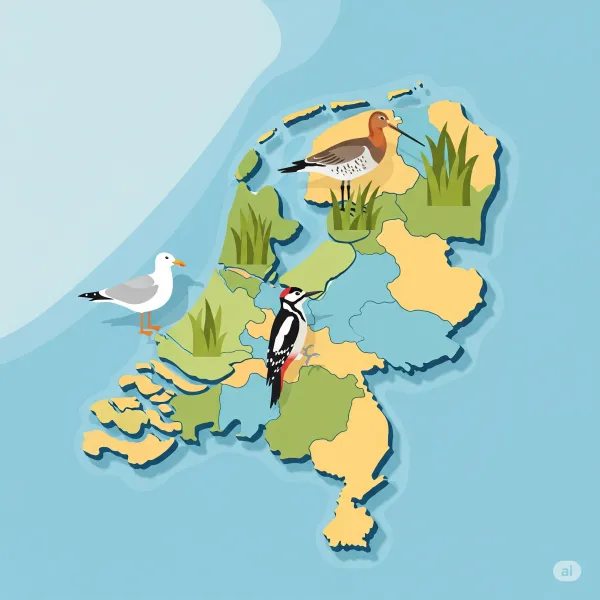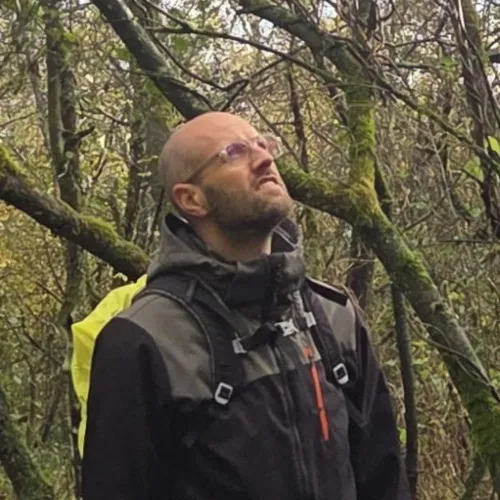
Red-necked Grebe
Red-necked Grebe
45
18 hours ago
B

Spotted by
The Red-necked Grebe is a medium-sized grebe identifiable by its rufous-red neck, dark cap, and pale cheeks, especially prominent during the breeding season. It is a powerful diver and often solitary.
Where to spot
Breeds across parts of Europe, Asia, and North America, typically migrating to coastal waters for winter. Found on freshwater lakes, ponds, and slow rivers with emergent vegetation during breeding, moving to estuaries and coastal areas in winter.
How to spot
In breeding plumage, look for its rufous-red neck, dark cap extending below the eye, and whitish cheeks. In winter, it's duller but retains the dark cap and pale cheeks. Look for it diving frequently. Listen for its varied calls, including harsh 'arrr' sounds and whinnying notes.
When to spot
Observable during the breeding season (spring to summer) on inland waters, and in winter (autumn to spring) on coastal waters. Migration periods can offer views at various stopover points.
Where to spot
Breeds across parts of Europe, Asia, and North America, typically migrating to coastal waters for winter. Found on freshwater lakes, ponds, and slow rivers with emergent vegetation during breeding, moving to estuaries and coastal areas in winter.
How to spot
In breeding plumage, look for its rufous-red neck, dark cap extending below the eye, and whitish cheeks. In winter, it's duller but retains the dark cap and pale cheeks. Look for it diving frequently. Listen for its varied calls, including harsh 'arrr' sounds and whinnying notes.
When to spot
Observable during the breeding season (spring to summer) on inland waters, and in winter (autumn to spring) on coastal waters. Migration periods can offer views at various stopover points.
Like other grebes, Red-necked Grebes are known for their intricate courtship displays, which involve synchronized diving, head-shaking, and 'penguin dance' displays where both birds stand upright on the water.
Loading...
Spotted
- Recently spotted
- 4304 (Seen in the last 3 months)
- Last spotted
- 18 hours ago
















